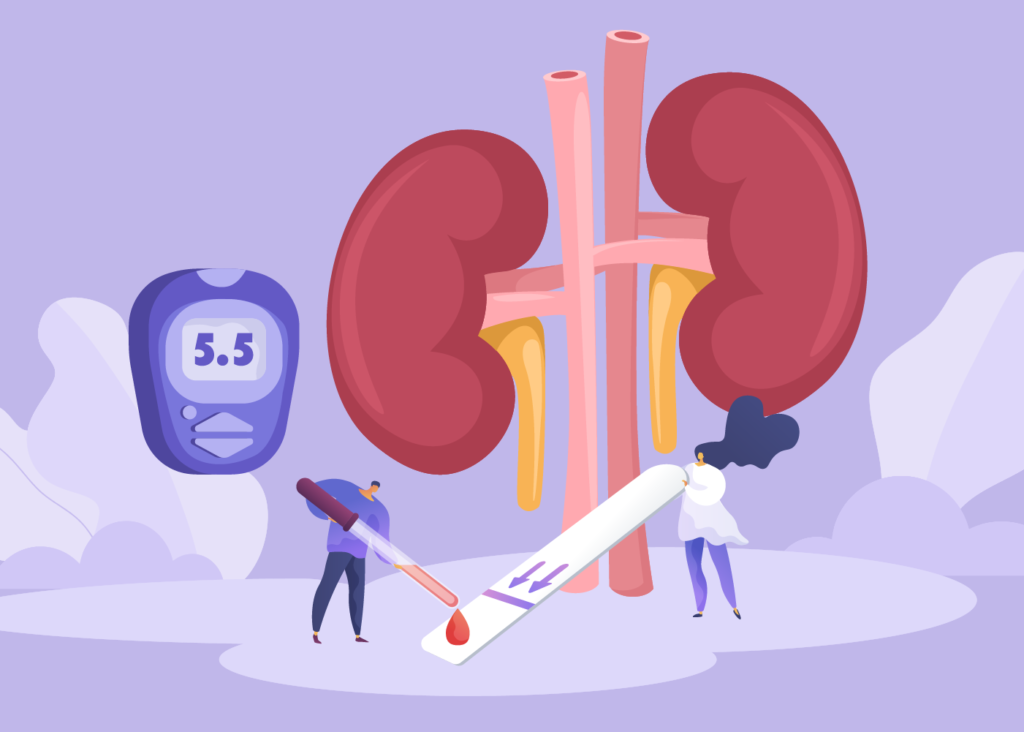More than 37 million Americans suffer from diabetes, and Type 2 diabetes accounts for up to 95% of these cases1.
If you have Type 2 diabetes, your physician may have warned you about the risks of developing kidney stones. We understand that this can be worrying news, and we delve into the causes of the association between diabetes and kidney stones so you can learn more.
What is Type 2 diabetes?
Diabetes is a condition where your body does not make any insulin, makes insufficient insulin or fails to utilize insulin. Insulin is essential to ensuring that blood sugar enters your cells, so that it can be converted into energy.
Type 2 diabetes is also known as “insulin resistance”, and occurs when your body is still producing insulin, but is unable to use it properly. As a result, your body is unable to regulate its blood sugar, and may cause symptoms such as frequent urination, extreme hunger and slow wound healing.
Unlike Type 1 diabetes, Type 2 diabetes can be prevented with lifestyle changes and, in mild cases, can be managed with lifestyle changes.
What is the link between Type 2 diabetes and kidney stones?
When you have Type 2 diabetes and experience abnormally high blood sugar levels (hyperglycemia), blood sugars are excreted into your urine (glycosuria). This increases the acidity of your urine, and can also lead to an increase in urinary calcium, phosphorus, and oxalate excretion2.
As a result, patients with Type 2 diabetes are more likely to develop uric acid and calcium oxalate stones2.
Extensive studies have shown that kidney stone risk increases significantly with growing severity of Type 2 diabetes, as indicated by glycemic control and insulin resistance.
What can I do?
If you have recently developed kidney stones or are worried about developing kidney stones, we recommend speaking to your diabetes care team about the dietary changes and/or medications that you may undertake to manage your stone risk.
This can be a scary time, and we encourage you to reach out to our Worst Pain Ever kidney stone patient community for support!
Sources:
-
National Diabetes Statistics Report 2020. estimates of diabetes and its Burden In the United States. (2020). Retrieved June 6, 2022, from https://www.cdc.gov/diabetes/pdfs/data/statistics/national-diabetes-statistics-report.pdf
-
Weinberg, A. E., Patel, C. J., Chertow, G. M., & Leppert, J. T. (2013, March 17). Diabetic severity and risk of kidney stone disease. European urology. Retrieved June 6, 2022, from https://www.ncbi.nlm.nih.gov/pmc/articles/PMC3866968/
-
Geraghty, R., Abdi, A., Somani, B., Cook, P., & Roderick, P. (2020). Does chronic hyperglycaemia increase the risk of kidney stone disease? results from a systematic review and meta- analysis. BMJ. Retrieved June 6, 2022, from https://bmjopen.bmj.com/content/bmjopen/10/1/e032094.full.pdf





